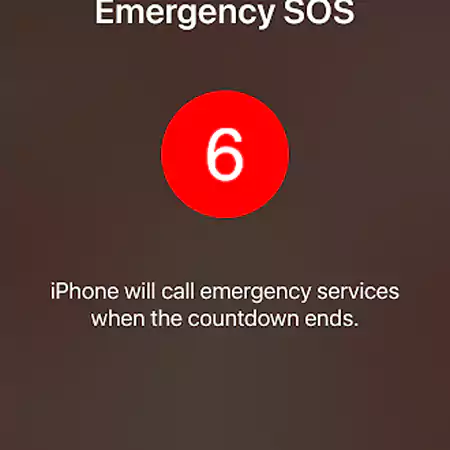SOS means distress signal in Morse code and is commonly used by maritime operators in cases of emergency.
For ages, SOS has been appearing in popular movies and songs, like Titanic and SOS by Rihanna. But did you ever wonder what it truly means?
It is a phrase that was originally used for emergencies but has now become a mainstream teenage text abbreviation. However, with the abundance of awful slang going viral on the internet, parents have started questioning its safety for kids.
So, if you are also worried SOS might be another harmful slang, you must read this blog and learn what the abbreviations mean and whether you should be concerned about your child using them. So, let’s get going!
Does anyone know what SOS means? – @awh_audrey on X
Quick Answer:
SOS is a Morse code distress signal that is typically used by sailors to seek help in emergencies. Kids use this phrase to ask for help in both big and small matters.
Using SOS in conversations is nothing to worry about. However, you must regularly check up on your child to see whether they are in trouble.
SOS is a Morse Code distress signal that is mostly used by ships at sea to seek help during emergencies. However, nowadays, it’s been used as an acronym by kids in text conversations.
Many people think that it means ‘save our ships’ or ‘save our soul’, but, in reality, the letters don’t stand for anything.
Morse code is an internationally recognized sequence of dots and dashes representing numbers and letters. It is typically used by Morse code operators to send and receive coded messages.
SOS is a Morse code sequence that is made up of three dots (S), three dashes (O), and three more dots (S) that are placed together with no space or full stop (…—…).
The use of SOS is not limited to marines only, as the new age of technology has incorporated this into our daily lives through mobile phones. iPhone users will get this statement better because the device comes with a built-in SOS feature.
iPhone provides two types of SOS features—one of them is calling local emergency numbers, and the other one is car crash detection. The former is effective in calling local emergency numbers and emergency contacts. And, the latter detects a car crash and sends an emergency SOS text via satellite, even if you’re out of Wi-Fi and cellular coverage.
However, this one is only available for the latest versions of iOS only.

Back in the day, maritime operators were looking for a common sequence that ships could use to seek help in emergencies. Hence, they considered various options, like ‘NC’ by the U.S. Navy, ‘CQD’ by Marconi Company, and ‘…—…’ by Germany.
The officials then concluded and selected ‘…—…’ as the universal signal to prevent confusion, which was later called SOS for the sake of convenience. It came into effect on July 1, 1908.
The first use of SOS was recorded in August 1909, when the wireless operators on the SS Arapahoe sent a signal as their ship was disabled by a broken propeller off the coast of Cape Hatteras, North Carolina.
When the Titanic was sinking, SOS was used alongside CQD, which convinced the U.S. to adopt the distress signal.
Kids use SOS to express distress or emergencies, often jokingly in casual conversations. Similar to TMI and WBU, they use it while chatting. Here are some examples of how your kid might be using SOS in text conversations. So, let’s take a look at that!
Although using SOS in text conversations is pretty harmless, there are chances your kid might be using this distress signal because they are in trouble.
Thus, you can’t easily ignore your child’s safety, even when you are not fully aware of the severity of the emergency.
Hence, you must monitor your child’s online interactions by installing some robust third-party parental control apps, like Bark or Net Nanny, on your kid’s smartphone. It will help you track your kid’s online activity and find out whether they are involved in any suspicious activities.
As I’ve mentioned earlier, you should monitor your child’s online activity, as it may indicate whether your child is in danger.
So, if you come across your child using this phrase, I recommend you sit down with your kid for a serious discussion. Here are some tips that will help you avoid confrontation:
Although SOS might seem like a harmless text abbreviation, I recommend you keep your eyes out for when these phrases pop on your kid’s screen to ensure your kids are out of danger. Also, make sure your kids are not using risky terms like deepfake or KYS online.
Needless to say, you must have a heart-to-heart conversation once now and then, so your child doesn’t hesitate to ask you for help.
SOS means distress signal in Morse code and is commonly used by maritime operators in cases of emergency.
Although SOS is typically harmless, it might indicate your kid might be in an emergency.
Kids use SOS in conversations to express distress or ask for help. The emergency may vary from being stressed out to being in an accident.
SOS on iPhone means the smartphone will send an automated SOS text to emergency contacts in case it detects an accident.
